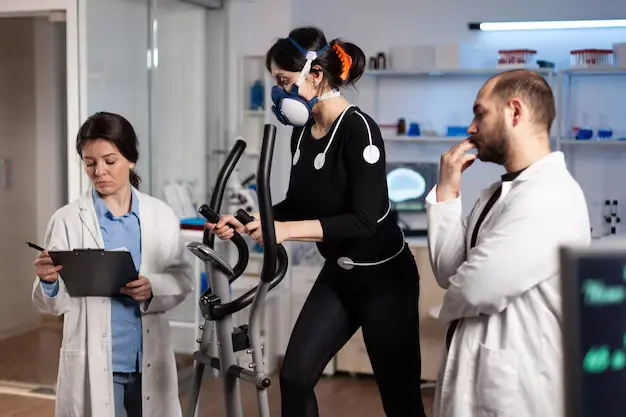The world of healthcare is undergoing a remarkable transformation. Technology is not just an add-on; it’s becoming the backbone of modern medicine. From electronic health records to telemedicine, innovations are reshaping how patients receive care and how providers deliver it. At the forefront of this evolution are companies like SepStream and Seppi Technology Associates, driving advancements that improve patient outcomes and streamline processes.
As we delve into healthcare technology, we’ll explore its impact on diagnostic imaging efficiency and the broader landscape of digital healthcare solutions. The future looks bright with these tools enhancing precision in diagnosis and treatment while also addressing some long-standing challenges in the industry. Join us as we uncover what’s next for healthcare technology!
Advancements in Diagnostic Imaging Efficiency
The field of diagnostic imaging has seen remarkable advancements in recent years. These innovations have streamlined processes, reduced wait times, and improved patient outcomes.
New technologies such as artificial intelligence (AI) are revolutionizing how images are analyzed. AI algorithms can now assist radiologists by quickly identifying abnormalities that may go unnoticed by the human eye.
Digital imaging systems like MRI and CT scans have become faster and more precise. This efficiency not only enhances accuracy but also minimizes exposure to radiation for patients.
Telemedicine is playing a vital role too. Remote consultations allow specialists to interpret images from anywhere in the world, facilitating immediate expert opinions and reducing delays in treatment.
As facilities adopt these advanced solutions, they witness significant improvements in workflow efficiency. The integration of real-time data sharing further empowers healthcare professionals to make informed decisions swiftly.
The Impact of Digital Healthcare Solutions
Digital healthcare solutions are transforming the medical landscape. They enhance patient care and streamline processes. Telemedicine, for instance, allows patients to consult doctors remotely. This convenience is especially vital in rural areas where specialists may not be easily accessible.
Data analytics plays a crucial role as well. By analyzing patient data, providers can identify trends and improve treatment protocols. Personalized medicine becomes more feasible when insights drive decisions.
Electronic health records (EHRs) create seamless communication among healthcare teams. This fosters collaboration that ultimately benefits patients through coordinated care.
Mobile health applications empower individuals to track their wellness journeys proactively. These tools encourage healthier lifestyles by providing real-time feedback on habits like exercise and diet.
As technology progresses, we expect even greater integration of digital solutions in daily healthcare practices. The potential to innovate continues to excite professionals across the industry.
Challenges and Opportunities for Implementing Healthcare Technology
Implementing healthcare technology comes with its set of challenges. One major hurdle is the integration of new systems into existing workflows. Many healthcare providers face resistance from staff who are accustomed to traditional methods. This can lead to delays and frustration.
Another challenge lies in data security. As patient information becomes increasingly digital, safeguarding this sensitive data is crucial. Breaches not only jeopardize patient trust but also have legal implications for providers.
Yet, these challenges present unique opportunities as well. Embracing change can foster a culture of innovation within organizations. Training programs can empower staff and enhance their skills while improving overall efficiency..
Case Studies: Success Stories of Healthcare Technology Implementation
Healthcare technology is making strides, evidenced by numerous success stories across the industry. One notable example involves a hospital that integrated SepStream’s innovative imaging solutions. This shift drastically reduced patient wait times and improved diagnostic accuracy.
Another case features Seppi Technology Associates implementing an electronic health record (EHR) system in a rural clinic. The transition led to streamlined workflows, enabling staff to focus more on patient care rather than paperwork.
A third instance highlights a telehealth platform adopted by several healthcare providers during the pandemic. It expanded access for patients in remote areas, enhancing treatment opportunities while maintaining safety protocols.
These diverse examples showcase how thoughtful implementation of healthcare technology can lead to significant improvements in efficiency and patient outcomes across various settings. Each story underlines the transformative potential of embracing modern tech solutions within healthcare systems.
Future Predictions for the Industry
The future of healthcare technology is promising and dynamic. As we move forward, artificial intelligence will play a pivotal role in diagnostics. Machine learning algorithms are set to enhance imaging processes, making them faster and more accurate.
Telemedicine is expected to expand significantly. Patients will increasingly seek remote consultations, driven by convenience and accessibility. This shift could redefine patient-provider relationships.
Wearable devices will become even smarter. Expect innovations that monitor health metrics continuously, providing real-time data for proactive health management.
Regulatory frameworks may evolve too, adapting to the rapid advancements in technology. Policymakers must ensure safety while fostering innovation within the industry.
Collaboration among tech companies like SepStream and Seppi Technology Associates can spur breakthroughs in digital solutions that address pressing healthcare challenges effectively. The landscape ahead is ripe with potential waiting to be harnessed.
Conclusion
The healthcare industry is evolving rapidly. Embracing technology has become a necessity rather than an option. Innovations like SepStream and the solutions provided by Seppi Technology Associates are paving the way for improved patient outcomes and streamlined operations.



